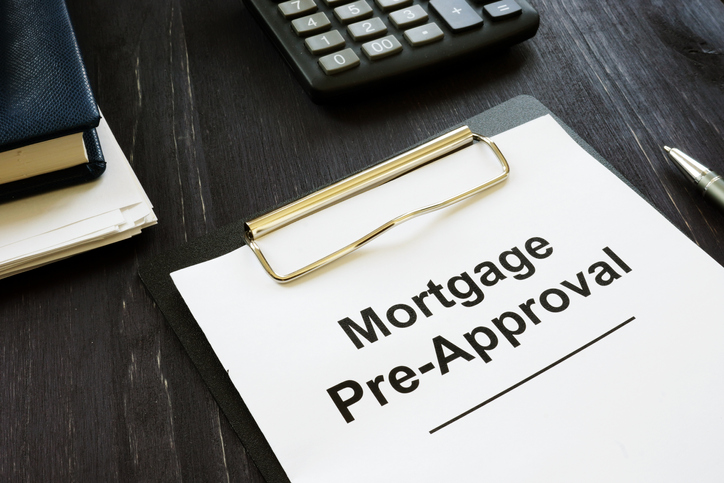What is earnest money?
In the journey of buying a home, one of the terms that frequently surfaces is ‘earnest money.’ This concept, while straightforward, is often a source of confusion for many, particularly first-time homebuyers.
The earnest money serves as a reassurance to the seller, giving them the confidence to remove the property from the market, much like a deposit when renting a property. However, a key difference lies in the eventual allocation of these funds.
In the context of a home purchase, at the final stage of the transaction, the earnest money is not merely a held deposit; it is credited towards your down payment and closing costs.
What Earnest Money Represents
At its core, earnest money acts as a symbol of the buyer’s commitment and intention to follow through with the home purchase. It’s a gesture that reassures the seller that the buyer is serious and committed to the transaction.
Standard Practices:
The amount of earnest money varies, but it commonly ranges from 1% to 3% of the home’s purchase price, depending on the market conditions and local customs.
In highly competitive markets, a larger earnest money deposit might be necessary to make an offer more appealing to the seller.
The payment of earnest money is typically accompanied by a signed contract between the buyer and seller, outlining the terms under which the deposit can be held, released, or potentially forfeited.
Earnest Money vs. Down Payment
Earnest money and down payment are not the same thing. The earnest money goes towards your down payment but is not the down payment itself. The down payment, which is typically a significantly larger amount, is due at the time of closing.
The down payment is a substantial amount, typically constituting 3% to 20% of the home’s purchase price. This payment represents the buyer’s equity in the property and is a critical component of the mortgage process.
On the other hand, earnest money is a smaller initial deposit, often seen as a gesture of good faith. This amount, which is part of the overall financial transaction, eventually contributes to the down payment or closing costs, serving as an advance rather than an additional cost.
How Earnest Money Works
This section outlines the typical procedures, timelines, and key considerations associated with earnest money transactions.
Payment Process and Timelines:
- Once the seller accepts your offer on a home, the next step is to deposit your earnest money. This usually needs to be done within a specific timeframe, often stipulated in the purchase agreement, which can range from a few days to about a week after the offer is accepted.
- The payment is typically made via a personal check, cashier’s check, or wire transfer. The method of payment should be agreed upon in the contract to ensure clarity and avoid delays.
Holding the Earnest Money:
- The earnest money is not given directly to the seller. Instead, it is held in an escrow account, managed by a neutral third party. This party is often an escrow company or a real estate brokerage. The role of this third party is to hold the funds securely and impartially until the transaction reaches a specific stage.
- The use of an escrow account protects both the buyer and seller, ensuring that the money is managed according to the terms of the purchase agreement.
Determining the Amount:
- The amount of earnest money is usually a percentage of the home’s purchase price. While there’s no fixed rate, the typical range is between 1% and 3%. However, this can vary based on local real estate market conditions and the specifics of the property.
- In competitive markets, a higher earnest money deposit can make your offer more appealing to sellers. It signals a strong commitment to the transaction and can give you an edge over other potential buyers.
Application of Earnest Money:
- If the home purchase proceeds as planned, the earnest money is applied towards the down payment or closing costs. This integration into the broader financial transaction ensures that the earnest money is not an additional cost but a part of your investment in the property.
- Clear communication and understanding of the terms outlined in your purchase agreement are crucial in ensuring a smooth process and the proper handling of your earnest money. The purchase agreement typically includes specific contingencies that the buyer must fulfill. Failure to meet these contingencies can result in the forfeiture of the earnest money. It’s vital for buyers to be aware of these conditions and to adhere to them diligently to avoid the risk of losing their deposit.
Additional Resources For Home Buyers On Coole Mortgage
For home buyers seeking more information, Coole Mortgage offers a variety of articles that can further assist in your home buying journey. Here are some additional resources available on our website:
- Home Purchase:
- Private Mortgage Insurance: An in-depth look at PMI, its costs, and implications.
- Government-Backed Home Loans: A guide to loans backed by the government, such as FHA and VA loans.
- Fixed-Rate Mortgage: Understanding the pros and cons of fixed-rate mortgages.
- Role of Real Estate Agents: How real estate agents can facilitate your home buying process.
- Mortgage Pre-Approval: The process and benefits of getting pre-approved for a mortgage.
- First-Time Home Buyer Mistakes: Common errors first-time buyers should avoid
These articles are designed to provide comprehensive and helpful information for both first-time and experienced home buyers. Visit Coole Mortgage’s blog for more insights and guidance on your home buying journey.
Examples of Earnest Money being used in a real estate purchase transaction
Standard Home Purchase
- Scenario: A couple finds a home listed for $400,000. They decide to make an offer and, as a sign of good faith, they include an earnest money deposit of $8,000 (2% of the offer price).
- Process: The earnest money is held in an escrow account until closing. If the deal goes through, this amount is applied towards their down payment or closing costs. If the deal falls through due to a contingency clause (like a failed home inspection), they get their earnest money back.
Competitive Market Situation
- Scenario: In a seller’s market, a buyer finds their dream home and knows there are multiple offers. To make their offer more attractive, they decide to put down a larger earnest money deposit, say 5%, to show they are serious and financially capable.
- Outcome: The larger earnest money deposit makes their offer stand out, and the seller accepts it. The earnest money is again held in escrow and applied towards the purchase at closing.
New Construction Home Purchase
- Scenario: A buyer decides to purchase a home that is yet to be built. The builder requires an earnest money deposit as part of the contract to begin construction.
- Details: The earnest money in this case might be a larger percentage of the purchase price or a fixed sum. This deposit is usually non-refundable if the buyer decides to back out without a valid reason covered by the contract.
Foreclosure Auction
- Scenario: A real estate investor decides to bid on a property at a foreclosure auction. The auction house requires an earnest money deposit to participate in the bidding process.
- Process: This earnest money is used to ensure that only serious buyers are bidding. If the investor wins the auction, the deposit is applied towards the purchase. If they don’t win, the earnest money is returned.
Backing Out of a Deal
- Scenario: After placing an earnest money deposit, a buyer discovers through a home inspection that there are significant, undisclosed issues with the property.
- Outcome: The buyer uses a contingency clause in the purchase agreement (like a home inspection contingency) to back out of the deal. They receive a refund of their earnest money deposit.
scenarios of when the seller can keep the earnest money
Failure to Meet Contingency Deadlines
Scenario: The purchase contract may have contingencies like a home inspection, financing, or sale of the buyer’s current home, with specific deadlines. If the buyer fails to meet these deadlines (for example, securing a mortgage by a certain date) without seeking an extension, the seller may be entitled to the earnest money.
Buyer Cancels Without a Contractual Reason
Scenario: If the buyer decides to cancel the purchase for reasons not covered by a contingency in the contract (such as a change of mind or finding another property they prefer), the seller can keep the earnest money. This is because the buyer is backing out of a legally binding agreement without a contractual basis.
Waiving Contingencies
Scenario: In a competitive market, a buyer might waive certain contingencies (like a home inspection) to make their offer more attractive. If issues arise later that would have been covered by the waived contingency, and the buyer decides to back out, the seller can claim the earnest money.
Failure to Complete the Purchase
Scenario: If all contingencies are met, but the buyer fails to complete the purchase by the closing date – for reasons within their control – the seller may keep the earnest money. Reasons might include the buyer not providing necessary documentation or not transferring funds in time.
Breach of Contract Terms
Scenario: The purchase agreement may have specific terms and conditions that the buyer must adhere to. If the buyer breaches any of these terms (like attempting to renegotiate the sale price after the agreement has been signed without a valid reason), the seller can retain the earnest money as compensation for the breach.
In these scenarios, the earnest money acts as a safeguard for the seller against potential losses or inconveniences caused by a buyer who does not fulfill their contractual obligations. Home-buyers make sure you thoroughly understand the terms of the purchase agreement and the implications of the contingencies involved to avoid losing your earnest money deposit.






